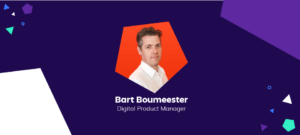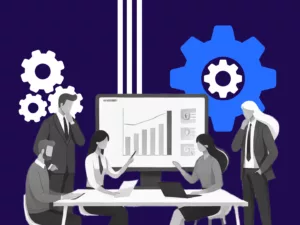“Knowledge is power”
This quote has been used by several great minds throughout history but is most often attributed to the works of philosopher Sir Francis Bacon in his work Meditationes Sacrae (Sacred Meditations) from 1597.
This quote is still often used today, but has this ancient wisdom survived the test of time?

As a support service provider, we are also knowledge workers. Our main goal every day is to help thousands of people by providing them with the knowledge that we have, and they need. In doing so, we solve their problems and provide an exceptional customer experience.
The knowledge Revolution
With the coming of the digital age, knowledge is now moving much more freely. Knowledge is no longer a single truth and simply having access to knowledge is no longer enough to stay ahead.
To succeed and thrive in this fast-paced environment you’ll need to consistently:
- Be exposed to the right information
- Gather relevant information from customers, partners, departments, and suppliers
- Ensure that information flows fast and to the right people
- Empower people to act on the information they receive
Technology can help you do some of these things. A well-designed customer interface, knowledge base, or integrated software system, for example. But these systems only add value in a well-structured organization with the right behaviors.
Introducing knowledge-centered service
One methodology to aid in creating the right structure and behaviors in the customer support or customer service domain is called KCS (Knowledge-Centered Service). Developed by the consortium for service innovation, KCS is a set of methodologies for businesses to deliberately structure how they create, share and apply their knowledge throughout the company.

Source: MindTouch
KCS as a methodology consists of two loops; A ‘solve’ loop and ‘evolve’ loop. The solve loop focuses on empowering your support team in the here and now to solve customer issues. The evolve loop focuses on improving your team’s ability to solve customer issues by focusing on the quality of your knowledge and content.
As a Product Manager, I love the KCS principle because it meets the criteria for effective knowledge and content management in support.
Firstly, by making KCS an integral part of the agents day-to-day, it fosters an organizational culture of knowledge creation and knowledge sharing. It also helps to apply this knowledge within your operational teams.
Secondly, it tackles a large part of the process requirements. KCS fits in great with ITIL-principles and provides battle-tested and proven guidelines on how to set and align process flows.
Thirdly, the KCS “double-loop” also provides a great mechanism for continuous improvement and organizational learning. It gives me lots of feedback and data that I can turn into and information that I can adopt directly into my product development and improvement strategy.
Putting knowledge where your mouth is
Now understanding this process and implementing it is one challenge. Actually applying it in daily operations is another adventure altogether.
Every organization has different products and topics they address, and the methodology needs to be tailored to different communication channels and media.
At 5CA, we recognize our agents are the subject matter experts and we can think of no better creators for our knowledge articles.
Instead of simply publishing this content on an internal knowledge base, we aim at making the knowledge base the single source of information for agents and customers alike. With the help of our clients’ brand guidelines and content editors, we train our agents to transform their knowledge into public-facing FAQs and instructions.
Even when you have all the tools and data hooks lined up, the biggest challenge is creating the right mindset within your organization and agents in taking ownership of the knowledge that you work with on a daily basis. Without practical application and proper presentation, knowledge is just like a book on your shelf collecting dust.
KCS is an ongoing program that helps keep your information up to date and centralized and at the core of your support business.
I’ll leave you with some further reading to learn more about KCS:
Introduction to KCS
If you’d like to talk about how to improve knowledge management in your support organization, reach out here.






